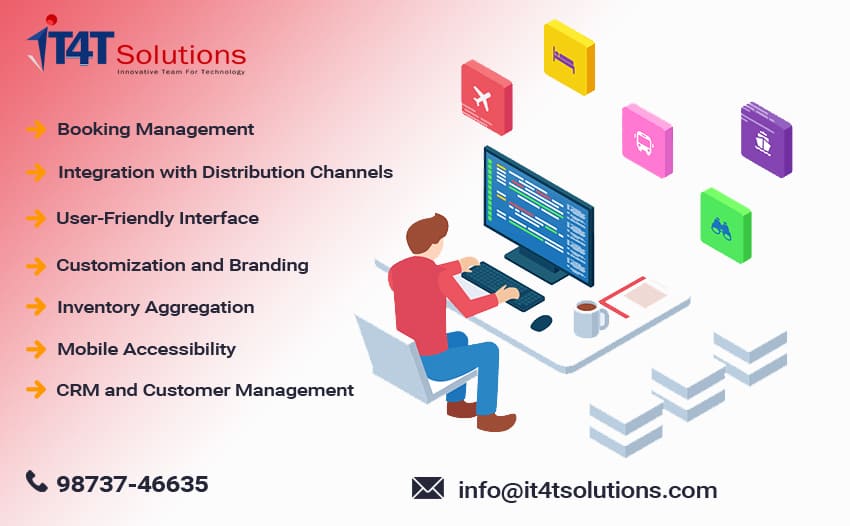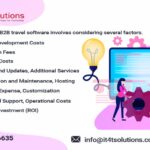Booking Management: The travel technology software should offer comprehensive booking management capabilities, allowing travel agents to efficiently search, book, modify, and cancel travel services such as flights, hotels, car rentals, and activities. And should have simple and quick user-friendly interfaces to modify and manage the bookings whenever possible.
Inventory Aggregation: It should integrate with multiple travel suppliers and aggregators, consolidating their inventory into a single platform. This ensures a wide range of options for travel agents and access to real-time availability and pricing.
User-Friendly Interface: A user-friendly interface with an intuitive design is crucial for easy navigation and efficient use of the software. It should be visually appealing, and responsive, and provide clear workflows for seamless booking processes.
Customization and Branding: The travel technology software should offer options for customization and branding, allowing travel agencies to personalize the platform with their logo, colors, and preferred layout. This helps to maintain a consistent brand image across customer touchpoints.
Integration with Distribution Channels: The software should have the capability to integrate with various distribution channels, including online travel agencies (OTAs), Global Distribution Systems (GDS), metasearch engines, and direct booking websites. This widens the reach and distribution of travel services.
Mobile Accessibility: Mobile accessibility is crucial in today’s travel industry. The software should have a responsive design or dedicated mobile apps, enabling travel agents to access and manage bookings on the go from their smartphones or tablets.
CRM and Customer Management: A robust customer relationship management (CRM) system within the software allows travel agents to manage customer profiles, preferences, and booking history. This facilitates personalized service delivery and targeted marketing campaigns.
Reporting and Analytics: The travel technology software should provide comprehensive reporting and analytics features to track key performance indicators (KPIs), sales, revenue, and booking trends. This data-driven insight enables informed business decisions and optimization of sales strategies.
Payment Processing: Seamless integration with secure payment gateways allows for smooth and secure payment processing. The software should support multiple payment methods and currencies to cater to a global customer base.
API and Integration Capabilities: API enables integration with third-party systems, such as accounting software, marketing tools, and customer support platforms. This facilitates data exchange, and automation, and enhances overall operational efficiency.
Support and Training: The software provider should offer reliable customer support, including technical assistance, training resources, and regular software updates. This ensures that travel agents can maximize the software’s potential and address any issues promptly.
Multiple inventory sources: The travel technology software should integrate with multiple inventory sources, including airlines, hotels, car rental companies, and tour operators, to provide a wide range of travel options.
Real-time data: The software should provide real-time data on pricing, availability, and other travel-related information to ensure that travel agents and customers can make informed decisions.
Payment processing: The software should integrate with secure payment gateways to process payments from customers and provide a variety of payment options.
Integration capabilities: The software should be able to integrate with other software and systems, such as accounting and CRM systems, to provide a seamless booking experience.
Security and compliance: The software should adhere to industry standards for security and compliance to protect sensitive customer data and ensure the safety of transactions.
Considering these main points when choosing travel technology software can help travel agencies and businesses optimize their operations, enhance customer experiences, and stay competitive in the dynamic travel industry.




